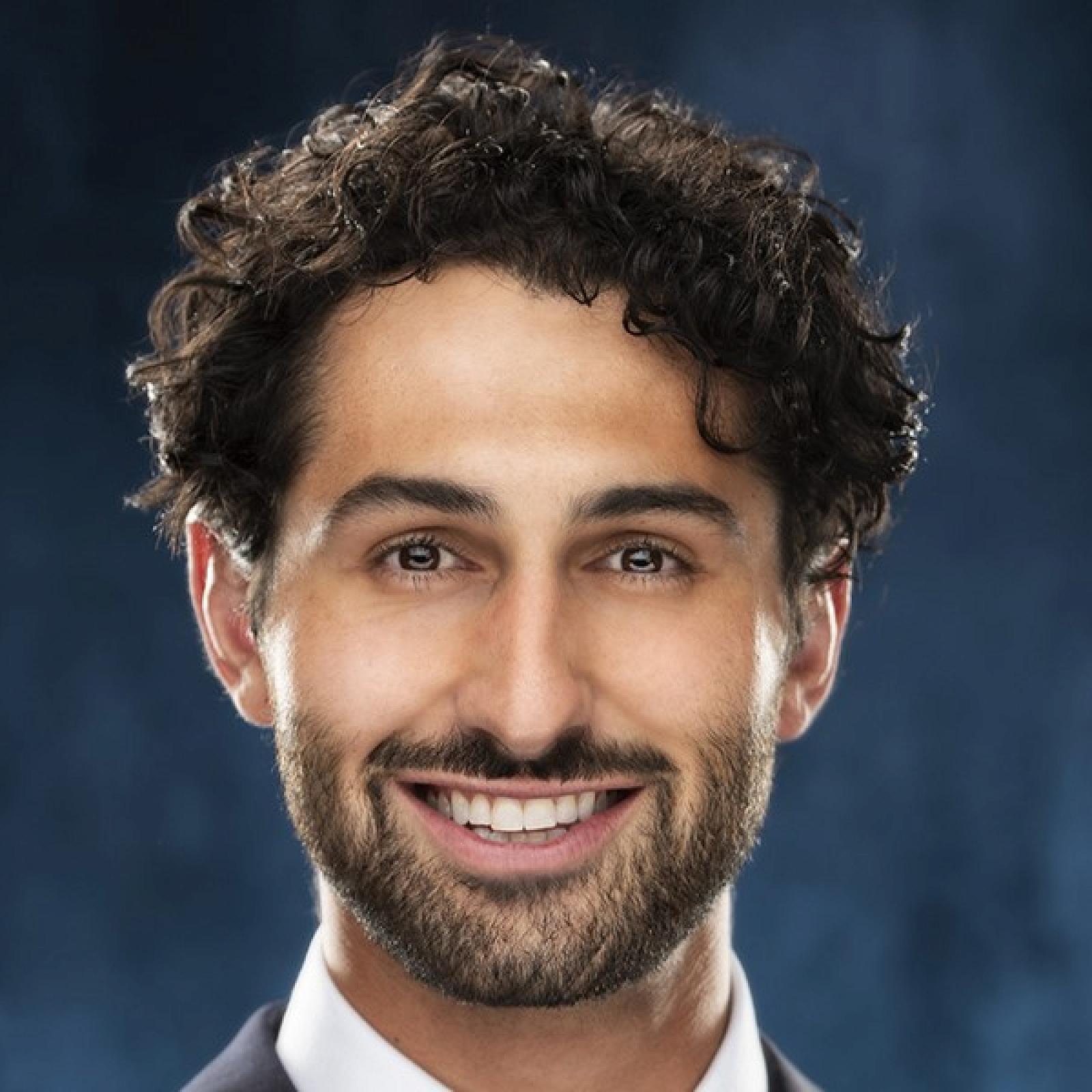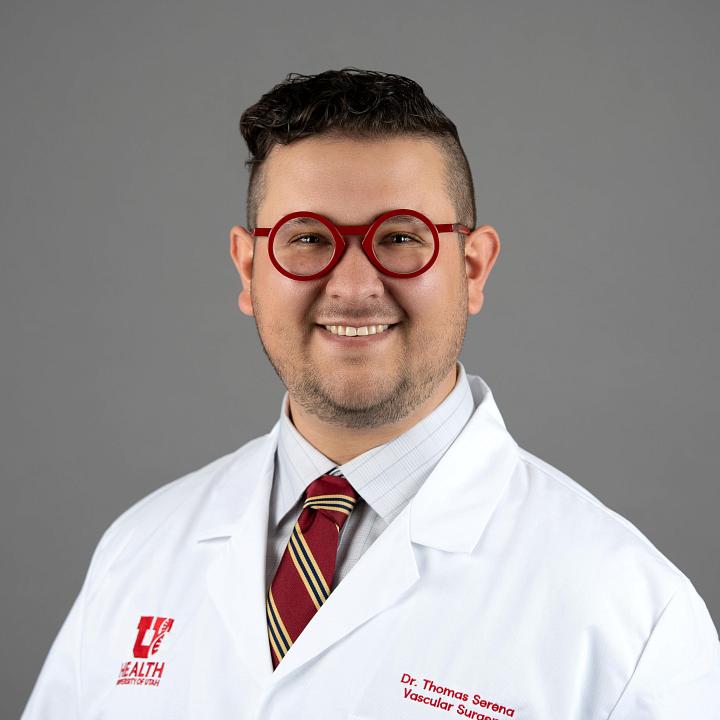
Vascular Surgery Fellowship
VASCULAR SURGERY FELLOWSHIP
The Division of Vascular Surgery offers a two-year, ACGME-accredited training program that begins on August 1 of each academic year.
We are proud of our role as the only group of academic vascular surgeons serving the Mountain West – the largest geographical area in the United States served by a single university medical center. Our surgeons are part of a multidisciplinary team of specialists who provide the highest quality medical, surgical, endovascular, and radiological care required to treat our patient’s complex needs.
Our program strives for excellence in all areas, earning our faculty and the program recognition both nationally and globally. We have achieved a 3-star rating for eight consecutive years from the Society for Vascular Surgery’s Vascular Quality Initiative (SVS VQI) for our active participation in the Registry Participation Program - the highest rating a program can earn.
With two main rotation sites at the University of Utah and Intermountain Medical Center, you’ll learn from leaders at the cutting edge of practice and research dedicated to your education and success. We offer balanced operative training in traditional open and innovative endovascular techniques, including open aortic case volumes in the 90th percentile for vascular surgery fellowship programs nationally. We are confident that the first-class educational experience we offer at the University of Utah will provide you with the knowledge, experience, and mentorship you’ll need to launch a successful career in vascular surgery.
PROGRAM INFORMATION
Our two-year program is designed to give graduating fellows a firm foundation to launch their career as a vascular surgeon. Our fellows our trained to be competent, caring physicians who are capable of caring for the most complex vascular cases. Learn more below!
- Train competent, professional, and knowledgeable physicians to take excellent care of the most complicated vascular patients using evidence-based medicine.
- Train fellows to participate and lead research investigations during and after fellowship, and to understand and be able to utilize medical statistics in their investigations.
- Keep the program “fellow-focused,” with a priority placed on fellow education while keeping in mind the need for patient care and hands-on teaching.
Fellows can expect a rich variety of educational opportunities in our program! Wednesday morning conference is protected education time for the section. Conference includes an hour of flipped classroom focusing on the VSCORE topics for the week. We often incorporate guest speakers who are able to enrich the discussion. Case conference follows where the group reviews the next weeks cases emphasizing high yield technical and management pearls. In addition, M&M conference, journal club, Aortic Conference, and simulation training are rotated on monthly.
Duty hours follow a strict 80-hour work week averaged over a month time.
The Vascular Surgery Fellowship Program adheres to the stipend policy outlined by the University of Utah GME Office. For more information, visit the GME trainee stipend website.
The mornings of all fifth Wednesdays are protected for fellows so that they may attend personal health and wellness appointments.
The Vascular Surgery Fellowship Program abides by all institutional policies as outlined by the University of Utah GME Office, including those pertaining to salary, leave, program responsibilities, and more. To see the current university policies, visit the GME policy website.
ROTATION INFORMATION
Rotations are spread between two hospitals: University of Utah Hospital and Intermountain Medical Center. Both hospitals are tertiary referral centers offering the full spectrum of vascular surgery. Fellows rotate in two-month blocks. At the university, a senior general surgery resident shares the service offering daily teaching opportunities to the fellows. Both hospitals have floor and care support from NP/PA teams allowing trainees to maximize their operative exposure.
UNIVERSITY OF UTAH HEALTH: LEVEL 1 TRAUMA CENTER
Case volume and variety:
- University: average 100 cases / month (and growing)
- Open infra-renal aortic aneurysm repair
- Ruptured – Average 10, 96th percentile
- Elective – Average 18, 95th percentile
- Abdominal Obstructive
- Average 28, 91st percentile
- Trauma
Aortic Disease Program for complex aortic cases
- 140 circulatory arrest open arch replacement cases since 2016
- Increasing referral base of chronic dissection, need for reoperative arch replacement
- 15-20 TEVAR cases per year
- Routine co-surgeon staffing (CT/Vascular)
- 73 abdominal aortic repairs over the past two years
- Fenestrated/branched abdominal cases (Iliac branch, thoracic branch)
- 150 TAVR cases per year (increasing)
- Rapid volume increase with ongoing growth over past 12 months, current volume two to three per month elective and urgent
Complex Endoaortic Program
- Failed EVAR, thoracoabdominal, juxtarenal pathology
INTERMOUNTAIN MEDICAL CENTER: LEVEL 1 TRAUMA CENTER
- 2022 Transplant Volume: 29 heart, 104 liver, 168 Kidney
- Cardiogenic Shock Program
- Over 400 Transcatheter valve procedures per year
- Intermountain Aortic Center: 140+ aortic procedures in 2022 (excluding open AVR)
- Hosted the first TBE deployment in intermountain region outside of clinical trial
- Aortic center is principle site for CYDAR--cloud-based fusion and AI decision tool starting Q2 2024 (one of 20 in U.S. and 40 globally)
The link below is a sample ACGME volume reports for one of our recent graduates, which reflects the average surgical volumes for most of our fellows in the program. For more information about current volumes, contact our program.
PROGRAM STRUCTURE
Throughout their rotations, fellows are trained in a variety of operative and clinical environments to build their skills. Additionally, fellows assist in mentoring residents, and leading research projects.
The fellowship prioritizes clinical exposure. Both program sites have active aortic centers employing open and endovascular techniques for treating complex aortic disease.
Fellows interact with a tiered team on a daily basis. They are expected to lead and teach junior residents, senior residents, and a cadre of physician extenders.
Fellows are required to complete one scholarly activity over their two years in the program. Those interested in pursuing academics have more opportunity to complete further projects. The division employs two full-time research associates to assist fellows with these activities. Visit our research page for more information.
Apply to the Program
Our program eligibility requirements follow the standards set by the University of Utah Graduate Medical Education. Visit their website for more information on fellowship eligibility.
Applications are accepted via the Electronic Residency Application System (ERAS), and our program participates in the National Resident Matching Program (NRMP). Fellowship interviews are held in early spring each year. For any questions regarding fellowship applications or verifications, please email emily.johnson@hsc.utah.edu.
OUR FELLOWS
Residency: General Surgery, University of California
Medical Degree: Medical College of Wisconsin.
Residency: General Surgery, Beaumont Hospital
Medical Degree: Kansas City University
2022-2024
Ethan Rosenfeld, MD
Practice: Presbyterian Hospital, NM
2021-2023
Nani J. Longwolf, MD
Practice: University of Utah, UT
2020-2022
Jane J. He, MD
Practice: Intermountain Healthcare, UT
2019-2021
Ian A. Schleider, DO
Practice: Intermountain Healthcare, UT
2018-2020
Beth Aitcheson, MD, MPH
Practice: Hartford Hospital, CT
2017-2019
Jay W Rawles, III, MD
Practice: Atlantic Vein and Vascular Associates, VA
2016-2018
Graham W Donald, MD
Practice: St. Alphonsus Regional Medical Center, ID
2015-2017
Angela Jellison, MD
Practice: Lahey Clinic, MA
2014-2016
Katie Reigstad, MD
Practice: Rice Memorial Hospital, MN
2013-2015
Edward Samourjian, MD
Practice: Kaweah Delta Medical Center, CA
2012-2014
Christopher Ward, MD
Practice: Kootenai Health, ID
2010-2012
Misty Humphries, MD
Practice: UC Davis Health System, CA
2009-2011
David Kauvar, MD
Practice: Brooke Medical Center
2008-2010
Grant Erickson, MD
Practice: Locums in Canada
2007-2009
Chinmaya Shelgikar, MD
2006-2008
Faheem Akhtar, MD
Practice: McKay-Dee Vascular & Vein, UT
2005-2007
Roger Shinnerl, MD, FACS
Practice: Evansville Surgical Associates, TN
2004-2006
Daniel Kinikini, MD
Practice: Salt Lake Veteran’s Administration Medical Center
2004-2005
Wang Teng, MD
Practice: South Orange County Surgical Medical Group, CA
2003-2004
Michelle Mueller, MD
Practice: Salt Lake Veteran’s Administration Medical Center
2002-2003
Mark Harding, MD
Practice: Cranley Surgical Associates, Ohio
2001-2002
Matthew J. Sideman, MD
Practice: The University of Texas Health Sciences Center, TX
2000-2001
Andrew Bourne, MD
Deceased
1999-2000
Brian Matteson, MD
Practice: Cardiothoracic and Vascular Associates, ID
1998-1999
Stacey L. Mazzacco, MD
Practice: Lancaster Surgical Group, PA
1997-1998
Mark Sarfati, MD
Practice: University of Utah Health, UT
1996-1997
Eric Irwin, MD
1995-1996
Dixon Santana, MD
Practice: Texas Tech University Health Sciences Center, TX
FACULTY
University of Utah Faculty:
- Christopher Audu, MD, PhD
- Benjamin Brooke, MD, PhD, FACS, DFSVS
- Lorena De Marco Garcia, MD, FACS, RPVI
- Nathan Droz, MD, Maj, USAF, MC
- Cali Johnson, MD, EdD
- Larry Kraiss, MD, FACS, DFSVS
- Nani Longwolf, MD
- Mark Sarfati, MD, FACS, FSVS
- Libby Weaver, MD
Intermountain Medical Center Faculty:
- Evan Brownie, MD
- Jane He, MD
- Matthew Whitten, MD
- Brian Sheehan, MD
CONNECT WITH US
Program Director:
Nathan Droz, MD, Maj, USAF, MC
nathan.droz@hsc.utah.edu
Program Coordinator:
Emily Johnson
emily.johnson@hsc.utah.edu
Follow Us on Social Media:

